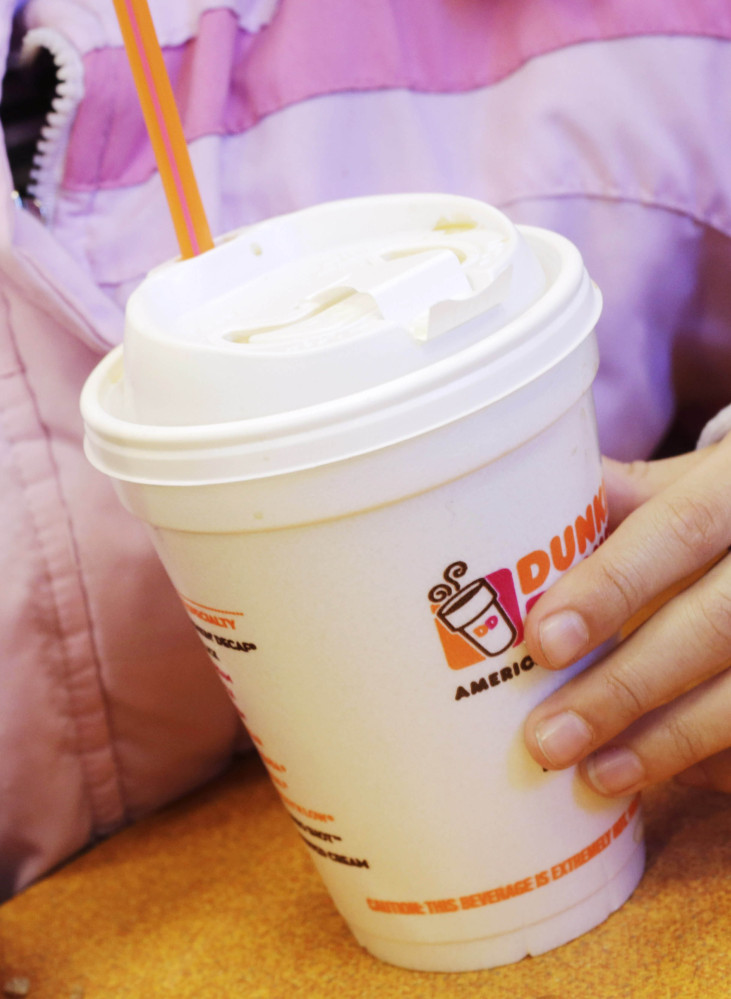NEW YORK — Plastic-foam food and drink containers in New York are set to go the way of trans fats and smoking in bars as the City Council voted to ban them in the name of environmental responsibility.
The Democratic-led, 51-member body passed the legislation unanimously Thursday in Manhattan. It prohibits restaurants, food carts and stores in the largest U.S. city from selling or providing single-use cups, clamshells and trays, as well as peanut-shaped packing materials, made from a type of thermoplastic petrochemical called expanded polystyrene.
An amendment gives officials a year to determine whether the substance can be recycled in an “environmentally effective, economically feasible and safe” way. If not, the ban will take effect as passed July 2015.
“This is a very important step forward to reduce the city’s solid waste stream, to reduce the amount of products that are out there that are dangerous and literally living on for half a century in our landfills,” Council Speaker Christine Quinn said at a City Hall news briefing prior to the vote.
ENVIRONMENTAL INITIATIVES
The foam ban is part of a slew of initiatives to make New York healthier and more environmentally friendly from Mayor Michael Bloomberg, whose 12-year tenure ends Dec. 31.
Calling for the “environmentally destructive” substance to “go the way of lead paint,” Bloomberg proposed the idea in February alongside initiatives for more electric vehicles and a curbside food-composting pilot program.
Almost 100 cities and towns, including San Francisco, Seattle and Portland, have banned polystyrene food and beverage containers, according to the Natural Resources Defense Council.
New York’s ban pitted closely held foam-maker Dart Container Corp. and Restaurant Action Alliance, a group backed by the American Chemistry Council, a trade group representing chemicals and plastics manufacturers, against Bloomberg and the 24 council members who co-sponsored the bill.
TONS OF LONG-LASTING WASTE
The foam doesn’t biodegrade and can’t be recycled, according to the mayor’s office. It makes up an estimated 20,000 tons of the city’s annual waste and contaminates the stream of recyclable metal, glass and plastics, the office says.
Dart, which is based in Mason, Michigan, dropped its opposition this month, while saying the legislation still “singles out and unfairly maligns a quality, cost effective and safe line of products.”
A report funded by the American Chemistry Council valued annual sales of foam containers in New York at $97.1 million. It said the ban would in effect be an “environmental tax,” forcing businesses and consumers to spend almost double on replacements including other plastics, coated paperboard and compostable materials.
The Bloomberg administration disagrees, saying “substantial research” it has conducted found the average cost difference per product would be 2 cents.
Send questions/comments to the editors.



Success. Please wait for the page to reload. If the page does not reload within 5 seconds, please refresh the page.
Enter your email and password to access comments.
Hi, to comment on stories you must . This profile is in addition to your subscription and website login.
Already have a commenting profile? .
Invalid username/password.
Please check your email to confirm and complete your registration.
Only subscribers are eligible to post comments. Please subscribe or login first for digital access. Here’s why.
Use the form below to reset your password. When you've submitted your account email, we will send an email with a reset code.